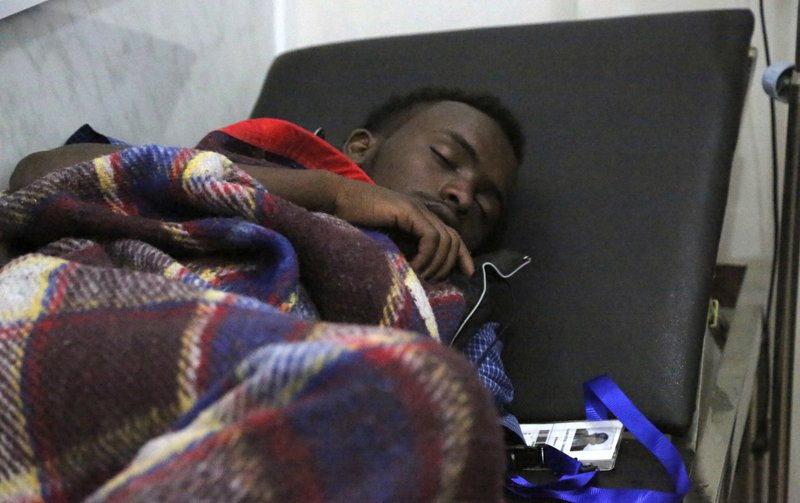ADEN, Yemen -- After reaching Yemen's shores in a packed migrant boat, the young Ethiopian coffee farmer was plunged into a living hell. The smugglers wanted thousands of dollars in ransom from the migrants, and they used him as an example of what would happen if they didn't pay.
Each day for a month, they inflicted new tortures on him, Omar Farrag told The Associated Press. They put him in a tank of water and lit a fire underneath it. They wrapped his limbs with tight barbed wire. At times, they heated the barbed wire.
Finally, his younger brother arrived from Ethiopia with $2,000 in ransom money. The smugglers decided they could squeeze more money out of him, so they tortured his brother and ended up killing him, Farrag said.
Now in the southern Yemeni city of Aden, the 26-year-old is overcome with guilt over his brother's death. "I got my brother killed; I am a disgrace. But it's impossible to imagine what I went through," Farrag said. "I don't even know where they buried him."
Migrants from the Horn of Africa are flowing into Yemen despite the nearly 2-year-old civil war that has thrown the country into its own humanitarian crisis of hunger and displacement. The migrants -- many, like Farrag, fleeing drought or poverty back home -- are hoping to cross Yemen and reach neighboring oil-rich Saudi Arabia.
More than 111,500 migrants landed on Yemen's shores last year, up from about 100,000 the year before, according to the Regional Mixed Migration Secretariat, a grouping of international agencies that monitors migration in the area.
The chaos caused by the civil war has raised migrants' hopes that they can slip through to Saudi Arabia, with no central authority keeping watch. However, the turmoil has also left migrants vulnerable to abuse and cruelty at the hands of the armed trafficking rings, many believed connected to and acting with protection from the multiple militias involved in the war.
After taking migrants' money as payment to transport them, the traffickers often demand more, sometimes even phoning their families in Ethiopia so they can hear the torment their loved ones are subjected to. Rape is so widespread that women carry contraception for fear of becoming pregnant.
The fate of migrants in Yemen remains a black hole. It is not known how many become trapped and abused, but officials from the International Organization for Migration and other U.N. agencies believe it is widespread. It is not even known how many eventually make it to Saudi Arabia, as the kingdom does not release figures.
Authorities in southern Yemen have carried out forced deportations of migrants at least seven times, organization officials said. In December, at least 25 drowned when they were forced onto boats to leave Aden.
The migrants were rounded up, packed onto small boats -- as many as 150 to a vessel -- and forced out to sea, according to Yemeni security officials in Aden. "They were led like animals with nothing with them but water," said one senior officer, speaking on condition of anonymity because he was not authorized to talk to the press.
More than 90 percent of the migrants belong to the Oromo community, Ethiopia's largest ethnic group, whose members often complain of discrimination at the hands of the Ethiopian government. Most are age 25 and younger -- some as young as 11, said Esam al-Makhzomi, an International Organization for Migration official in Aden. According to organization figures, about 20 percent of the migrants are unaccompanied minors.
"There was an impression that the numbers are going down but in fact ... the numbers are huge and they continue to grow," he said.
Farrag bears marks of torture at the hands of the smugglers. His arms are covered with burns and scars and he has a deep scar under one eye. One of his toes is missing.
"Now, if I see a migrant with a scar, I can tell how he sustained it. I have tasted all sorts of torture," he said.
Despite all the suffering, Farrag hasn't given up.
"I am saving money to go to Saudi Arabia," he said.
Information for this article was contributed by Ahmed al-Haj of The Associated Press.
A Section on 01/29/2017
